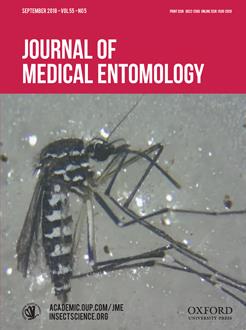Immature mosquitoes alter their foraging behavior in response to variation in nutrients, predators, and temperature, with consequences on the adult stage where pathogens are transmitted. These patterns of behavior have not been described with respect to both developmental stage and environmental variation, nor has behavior been examined within an individual across instars. We hypothesized that individual larvae have distinct behavioral syndromes, and predict that the rank of foraging activity in the third instar will be correlated with foraging activity in the fourth instar for an individual across all conditions. We also hypothesized that individuals that fail to achieve adulthood forage more intensely than those that will emerge due to the need for greater resources. To examine these hypotheses, we conducted an experiment in which we exposed 96 individual Aedes aegypti L. (Diptera: Culicidae) larvae to four combinations of temperature and nutrients. We recorded larvae in the third and fourth instar, and generated time budgets of active and passive foraging behaviors. We found correlations between individual behavior in the third and fourth instar when conditions were the most stressful (cool temperatures and low nutrients). Controlling for this intra-individual behavior, there was variation between instar behaviors, but this was dependent on both temperature and nutrients. We also found that larvae that failed to pupate within 28 d before emergence foraged more intensely than those that emerged. While we found no evidence that mosquitoes have distinct behavioral syndromes in Ae. aegypti, we did find support that nutrients and temperature affect behavior differently at different instars.
BioOne.org will be down briefly for maintenance on 12 February 2025 between 18:00-21:00 Pacific Time US. We apologize for any inconvenience.
How to translate text using browser tools
15 May 2018
Tracking Aedes aegypti (Diptera: Culicidae) Larval Behavior Across Development: Effects of Temperature and Nutrients on Individuals' Foraging Behavior
Michael H. Reiskind,
M. Shawn Janairo
ACCESS THE FULL ARTICLE
It is not available for individual sale.
This article is only available to subscribers.
It is not available for individual sale.
It is not available for individual sale.

Journal of Medical Entomology
Vol. 55 • No. 5
September 2018
Vol. 55 • No. 5
September 2018
Aedes aegypti
behavioral syndrome
mosquito
ontogeny
sex-specific behavior




